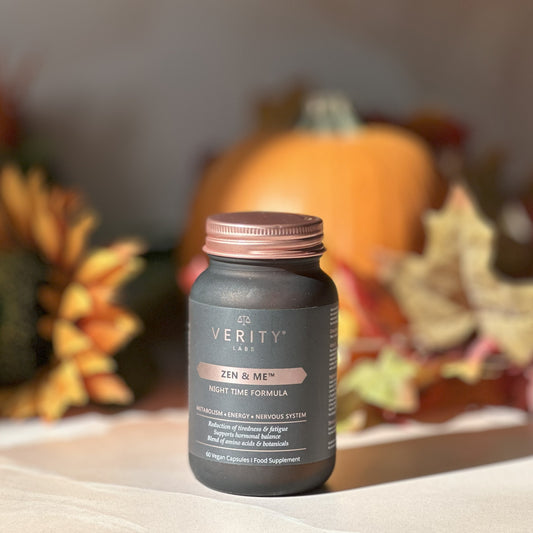Small Intestinal Bacterial Overgrowth (SIBO) stands as a complex gastrointestinal condition that continues to puzzle both patients and healthcare professionals alike. In this comprehensive guide, we explore the complicated aspects of SIBO, shedding light on its symptoms, the challenges of underdiagnosis, dietary strategies for managing symptoms, and the array of treatment options available.
Understanding SIBO
SIBO occurs when there is an abnormal increase in the population of bacteria in the small intestine, leading to various digestive symptoms and systemic complications. Unlike the large intestine, which harbours a significant bacterial population, the small intestine typically maintains a relatively low bacterial count. When this delicate balance is disrupted, SIBO condition can arise, resulting in a host of distressing symptoms.
Symptoms of SIBO
The symptoms of SIBO can vary widely among individuals but often include:
- Bloating
- Abdominal pain or discomfort
- Gas and flatulence
- Diarrhoea
- Constipation
- Fatigue
- Nutritional deficiencies
- Weight loss
- Nausea and vomiting
These symptoms can significantly impact quality of life, leading to discomfort, embarrassment, and frustration for those affected by the condition.
Challenges of Underdiagnosis
Despite its prevalence and impact on health, SIBO remains underdiagnosed in many cases. The symptoms of SIBO can overlap with those of other gastrointestinal disorders, such as irritable bowel syndrome (IBS), celiac disease, and inflammatory bowel disease (IBD), making it challenging to identify and differentiate.
One of the main diagnostic methods is using a hydrogen and methane breath test. In this non-invasive procedure, patients are instructed to fast for a specific period before the test and may follow a special diet to minimize the presence of fermentable carbohydrates in the gut.
Dietary Management of SIBO
Diet plays a crucial role in managing SIBO symptoms and supporting gut health. While there is no one-size-fits-all approach to SIBO diet, several dietary strategies may help alleviate symptoms and reduce bacterial overgrowth in the small intestine. These may include:
- Following a low-FODMAP diet: Restricting fermentable carbohydrates can help reduce gas production and alleviate bloating and discomfort.
- Eliminating trigger foods: Identifying and eliminating foods that exacerbate symptoms can help manage SIBO flare-ups.
- Incorporating prokinetic foods or supplements: Prokinetic agents help improve gut motility, preventing the stagnation of food in the small intestine and reducing the risk of bacterial overgrowth.
Treatment Approaches for SIBO
Treating SIBO typically involves a multifaceted approach aimed at addressing underlying causes, reducing bacterial overgrowth, and alleviating symptoms. Treatment options may include:
- Antibiotics: Antibiotic therapy is often prescribed to eradicate bacterial overgrowth in the small intestine. Commonly used antibiotics for SIBO include rifaximin and neomycin.
- Prokinetic agents: Prokinetic medications help improve gut motility, reducing the risk of bacterial overgrowth and promoting digestive health.
- Dietary modifications: Adopting a tailored diet plan, such as the low-FODMAP diet, can help manage symptoms and prevent SIBO flare-ups.
- Addressing underlying conditions: Identifying and treating underlying conditions, such as hypochlorhydria (low stomach acid) or structural abnormalities in the gastrointestinal tract, is essential for long-term management of SIBO.
Use of Natural Methods
Natural methods, including the use of herbal supplements and digestive enzymes, are often employed in the treatment of SIBO to help restore gut health and alleviate symptoms. Oregano oil, thyme oil and berberine, known for their antimicrobial properties, are commonly used to target and reduce bacterial overgrowth in the small intestine. Additionally, digestive enzymes play a crucial role in supporting digestion and nutrient absorption, which may be compromised in individuals with SIBO. Supplementing with digestive enzymes can help break down food more efficiently, reducing the availability of fermentable substrates for bacterial fermentation in the small intestine.
When using natural methods to treat SIBO, it's essential to work with a healthcare provider experienced in managing gastrointestinal conditions. They can help tailor a treatment plan that addresses individual needs and preferences while monitoring for any potential interactions or adverse effects. Combined with dietary modifications and lifestyle changes, natural supplements can play a valuable role in managing SIBO and promoting gut health.
SIBO presents a complex and challenging clinical entity, characterized by a diverse array of symptoms and potential complications. While underdiagnosis remains a significant hurdle, increasing awareness among healthcare professionals and the general public can help improve early detection and management of the condition. By understanding the symptoms, challenges of underdiagnosis, dietary strategies, and treatment approaches for SIBO, individuals affected by this condition can take proactive steps to manage their symptoms, improve their quality of life, and regain control of their digestive health.
References:
https://www.ncbi.nlm.nih.gov/pmc/articles/PMC7386065/
https://www.ncbi.nlm.nih.gov/pmc/articles/PMC3099351/
https://www.ncbi.nlm.nih.gov/pmc/articles/PMC4030608/

















